
peaches, l
(article, Culinate staff)
[%adInjectionSettings noInject=true] Everybody, it seems, needs more than just one shopping list these days. In addition to the piece of paper on which you've scribbled "milk, eggs, and garlic," you also need a sustainable-fish list, telling you which fish are the most environmentally friendly to buy, and a healthy-produce list, reminding you which produce you really should buy organic and which you can just buy from any (hopefully local) vendor. Most folks buy organic to avoid pesticides, but if you're also buying local, you're getting fresher (and generally tastier) food. And yes, the science is finally in: Organic food really is more nutritious than conventional. So we've cobbled together a visual shopping guide, using info from the Environmental Working Group, the Organic Center, the Organic Consumers Association, and Cindy Burke's lengthier (but still skinny) book on the matter, To Buy or Not to Buy Organic. We hope this produce guide proves useful in the store — especially since it can occasionally be tough to find shopping guides online. In addition, if you're buying animal products, Burke says you should really consider buying only organic. Why? Because chemical residues concentrate in animal fats, and the fattier an item — say, cheese — the more likely it is to be contaminated. h3. The Organic List (Or, 20 Items You Really Should Buy Organic) The first item on this list — peaches — has the highest occurrence of pesticides when grown conventionally. The second item (apples) has the next highest occurrence. And so on. The list comes from the Environmental Working Group. [[block(clear). ]] [%image peaches width=200 float=left] Peaches As Cindy Burke writes in To Buy or Not to Buy Organic, "Peaches are one of the fruits most likely to contain multiple pesticide residues after harvest." But if you like canned peaches, you can buy them non-organic. [[block(clear). ]] [%image reference-image width=200 float=left] Apples Kids eat a ton of apples, which makes this everyday fruit an organic essential. [[block(clear). ]] [%image bellpeppers width=200 float=left] Sweet bell peppers Burke writes, "Conventionally grown peppers are highly likely to contain pesticide residues." [[block(clear). ]] [%image celery width=200 float=left] Celery Out of all the conventionally grown veggies out there, Burke says that non-organic celery is the vegetable most likely to contain pesticide residues. Blame it on the plant's tendency to absorb pretty much everything. [[block(clear). ]] [%image nectarines width=200 float=left] Nectarines All stone fruits tend to be high in pesticide residue if conventionally grown. Kids especially like nectarines (no fuzz like peaches), so buy organic. [[block(clear). ]] [%image strawberries width=200 float=left] Strawberries One of the most delicate and finicky fruit crops around, strawberries have traditionally been dosed with all kinds of chemicals to prevent mildew, decay, and the like. Please, please, only buy organic strawberries. [[block(clear). ]] [%image cherries width=200 float=left] Cherries Cherries are kind of like the strawberries of trees — dainty and fragile. And, like all stone fruits, they're often heavily sprayed. It can be tough to find organic cherries, but if you do, snap them up. Otherwise, canned and bottled cherries are an OK second choice. [[block(clear). ]] [%image lettuce width=200 float=left] Lettuce As Burke points out, leafy greens grow close to the ground — and their nooks and crannies hide chemical residues easily. And we tend to eat lettuce raw with just the barest of washings. So buy organic. [[block(clear). ]] [%image importedgrapes width=200 float=left credit="Photo: iStockphoto/THEPALMER"] Grapes (imported) Burke: "Imported grapes are fumigated with methyl bromide, a highly toxic and dangerous ozone-depleting chemical." Skip 'em. [[block(clear). ]] [%image pears width=200 float=left] Pears Like apples, pears retain high amounts of pesticide residue. [[block(clear). ]] [%image spinach width=200 float=left] Spinach See Lettuce, above. Little green leaves close to the ground like residue. [[block(clear). ]] [%image potatoes width=200 float=left] Potatoes Potatoes in general are likely to contain multiple pesticide residues, but Burke points out that Russet potatoes (the kind used by McDonald's for its French fries) tend to be very high in residue. If you can't find organic potatoes but still want spuds, skip the Russets. [[block(clear). ]] [%image carrots width=200 float=left] Carrots Fun fact from Burke: "Carrots are so good at absorbing heavy metals from soil, they are sometimes grown as a throwaway crop to rid a field of lead or arsenic contamination." Let's hope those carrots actually do get thrown away, shall we? [[block(clear). ]] [%image greenbeans width=200 float=left] Green beans Green beans, says Burke, get the full meal deal: multiple sprayings of pesticides, herbicides, and fungicides. [[block(clear). ]] [%image hotpeppers width=200 float=left] Hot peppers See Sweet bell peppers, above. [[block(clear). ]] [%image cucumbers width=200 float=left] Cucumbers Conventionally grown cucumbers get dosed with highly toxic organo-phosphate pesticides. [[block(clear). ]] [%image raspberries width=200 float=left] Raspberries If you can't find certified-organic raspberries, buy berries labeled pesticide- or fungicide-free. And because berries are so squashable, always try to buy local berries — they're cheaper, fresher, and tastier. [[block(clear). ]] [%image plums width=200 float=left] Plums Plums are lowest on the stone-fruit list for pesticide residues — but that doesn't mean they're clean. [[block(clear). ]] [%image oranges width=200 float=left] Oranges If you're just going to juice your oranges, you can probably get by with conventional ones. But if you're planning to use the peel in any way (including your kids sucking on orange slices), buy organic, as the peel is where most residues hang out. [[block(clear). ]] [%image domesticgrapes width=200 float=left credit="Photo: iStockphoto/THEPALMER"] Grapes (domestic) Burke says that grapes grown in the U.S. typically test low on the pesticide-o-meter, but if you're giving those grapes to kids, buy organic. [[block(clear). ]] On the next page is the list of 20 items that have the fewest pesticide residues. [%pageBreak] h3. The Non-Organic List (Or, 20 Items You Don't Need to Buy Organic) This list is essentially the bottom half of the Environmental Working Group's pesticide list, which means that the last item on the list — avocadoes — is, when grown conventionally, the cleanest of the bunch for pesticide residues. Keep in mind two rules of non-organic thumb: Plants in the allium family have natural pesticides in them, so you can generally buy them non-organic. And tropical products (fruit, nuts) are also often grown without chemicals. For more information, check out the EWG's methodology and the Organic Consumer Association's produce rankings. [[block(clear). ]] [%image lemons width=200 float=left] Lemons The same rule applies to lemons as to oranges, above: Buy organic if you're going to be using the peel, but non-organic if you're just using the juice. [[block(clear). ]] [%image honeydew width=200 float=left] Honeydew melon Like other melons, the honeydew's thick skin is a barrier against most pesticides. [[block(clear). ]] [%image grapefruit width=200 float=left] Grapefruit Grapefruit has the lowest detectable residues of any citrus fruit. Still, if you want to use the peel, buy organic. [[block(clear). ]] [%image squash width=200 float=left] Winter squash If you're going to eat that pumpkin or butternut squash, buy organic. But if you're just going to use it as decoration or carve it for Halloween, non-organic is fine. [[block(clear). ]] [%image tomatoes width=200 float=left] Tomatoes As with berries, good tomatoes are so fragile that buying them locally is the most important consideration. They'll be fresher and tastier, too. [[block(clear). ]] [%image sweetpotatoes width=200 float=left] Sweet potatoes Unlike ordinary potatoes, pesticides aren't used much on sweet potatoes — which makes for a relatively chemical-free crop. [[block(clear). ]] [%image watermelon width=200 float=left] Watermelon Same rule as for sweet potatoes, above: Chemicals just don't do well on watermelon crop. Buy local melons for the best taste. [[block(clear). ]] [%image blueberries width=200 float=left] Blueberries Unlike strawberries and raspberries, blueberries are low in pesticide residues. (The same is true for blackberries.) Buy local for the best flavor. [[block(clear). ]] [%image papayas width=200 float=left] Papayas As Burke writes, "Thick-skinned tropical fruits have little or no pesticide residue after harvest." So there you go. [[block(clear). ]] [%image eggplants width=200 float=left] Eggplant Eggplant crops are sprayed with pesticides and herbicides, but they seldom contain residues. [[block(clear). ]] [%image broccoli width=200 float=left] Broccoli Chemicals don't work well on broccoli, so they're not used very much. Lucky you. [[block(clear). ]] [%image cabbage width=200 float=left] Cabbage With one major exception — Napa cabbage — pesticides are seldom used on cabbage. But if you like Napa, buy it organic. [[block(clear). ]] [%image bananas width=200 float=left] Bananas The banana's thick skin helps keep pesticides out. [[block(clear). ]] [%image kiwis width=200 float=left] Kiwis They may have thin skins, but kiwis have very few pesticide residues. [[block(clear). ]] [%image asparagus width=200 float=left] Asparagus Bugs don't like asparagus, so farmers hardly ever use pesticides on the crop. [[block(clear). ]] [%image peas width=200 float=left] Sweet peas As with eggplant, broccoli, and cabbage, peas (fresh or frozen) consistently test low for pesticide residues. [[block(clear). ]] [%image mangoes width=200 float=left] Mangoes Like the other tropical fruits on this list, mangoes have a thick-enough skin to keep pesticides out. [[block(clear). ]] [%image pineapples width=200 float=left] Pineapples Pineapples are as tough as they look — no chemicals here. [[block(clear). ]] [%image corncob width=200 float=left] Sweet corn Both fresh and frozen sweet corn, despite the use of herbicides and pesticides, retain little residue. Buy local and eat as soon as possible for the best taste. [[block(clear). ]] [%image avocadoes width=200 float=left] Avocadoes Yet another one of those thick-skinned tropical fruits. Eat away. [[block(clear). ]]

peaches, l
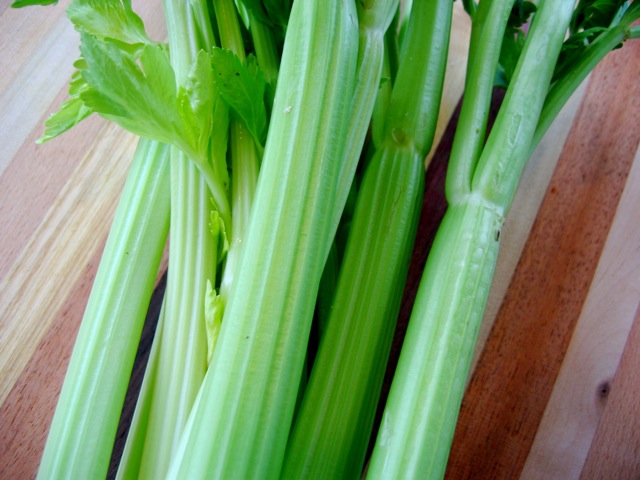
celery, l

strawberries, l
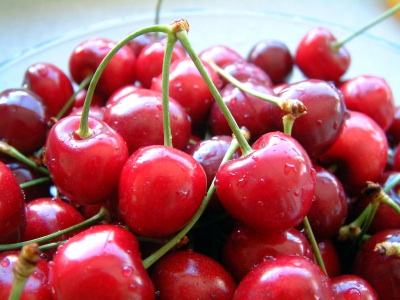
cherries, l
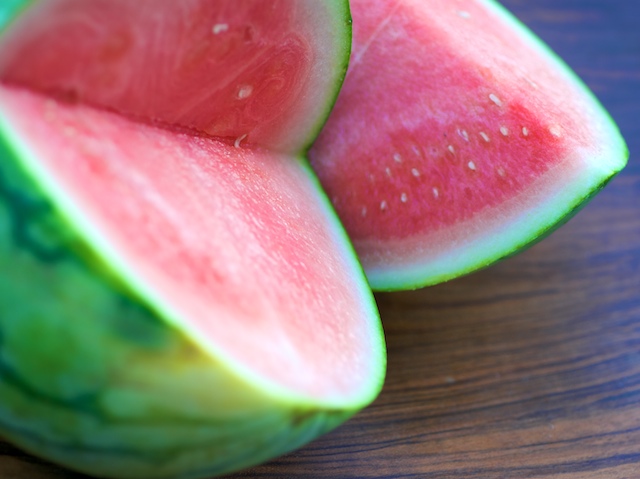
watermelon, l
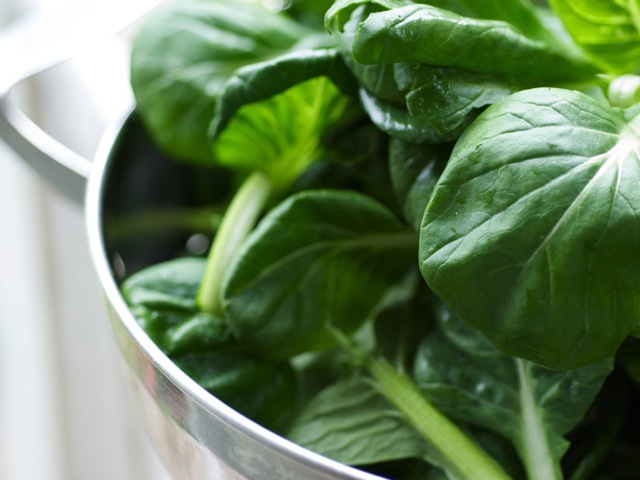
spinach, l

avocadoes, l
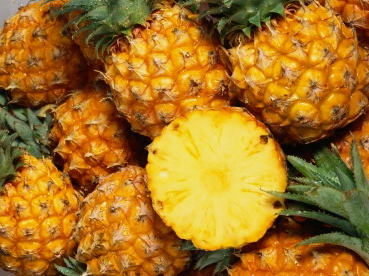
pineapples, l
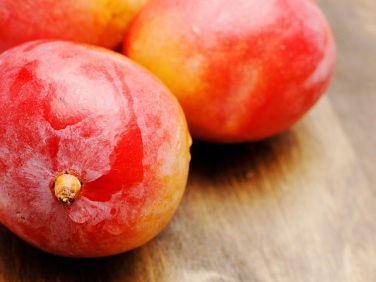
mangoes, l

papayas, l

bananas, l
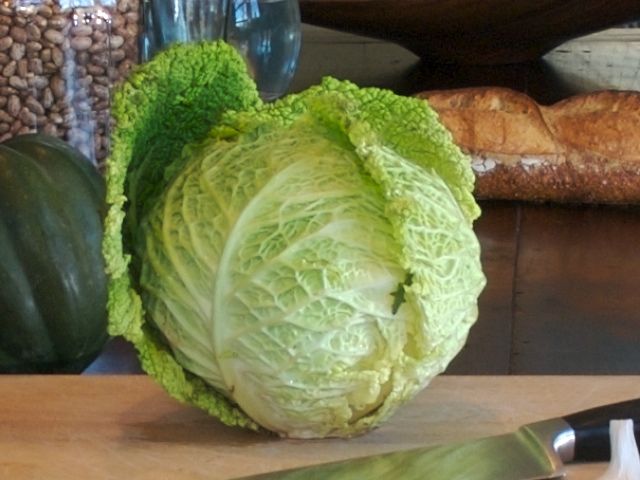
cabbage, l

hotpeppers, l
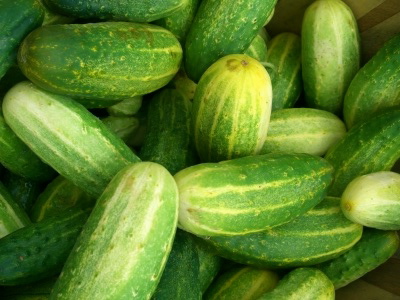
cucumbers, l
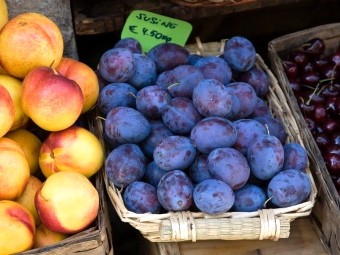
plums, l
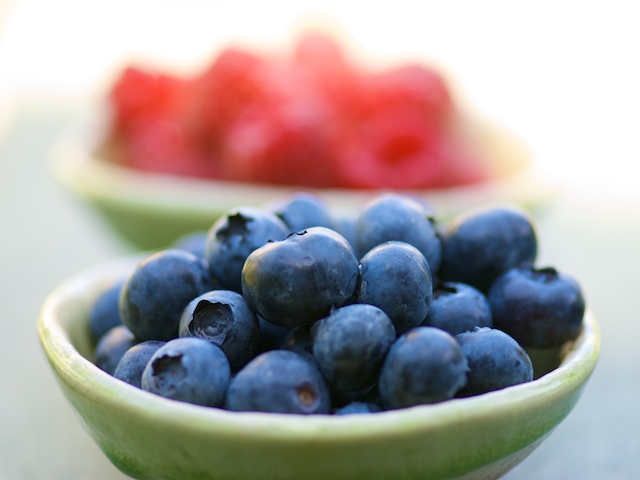
blueberries, l
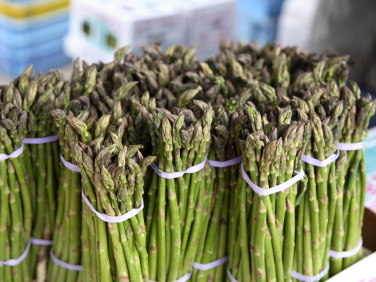
asparagus, l
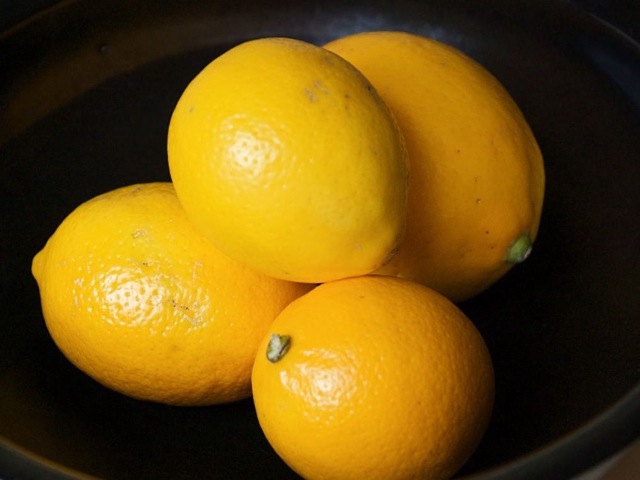
lemons, l

tomatoes, l

oranges, l

bellpeppers, l

eggplants, l

peas, l

reference-image, l
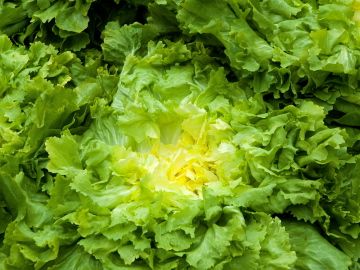
lettuce, l
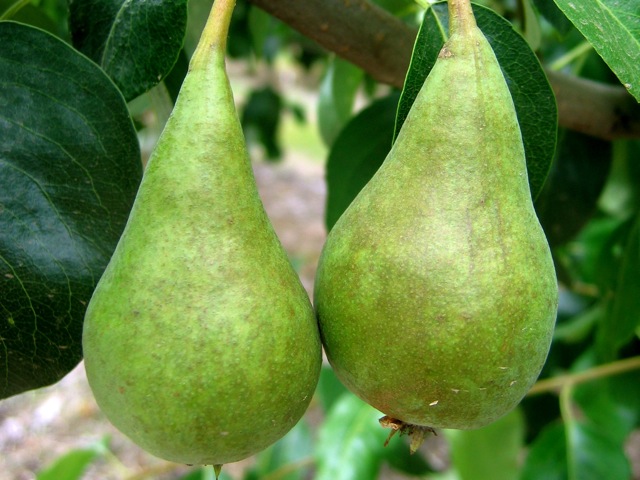
pears, l

squash, l

broccoli, l

kiwis, l
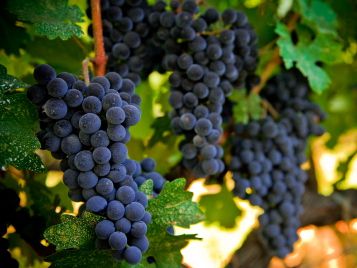
domesticgrapes, l

importedgrapes, l

grapefruit, l
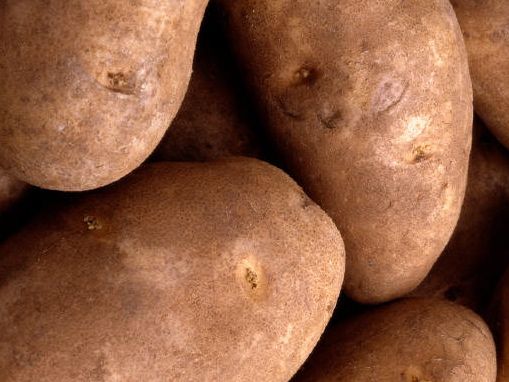
potatoes, l
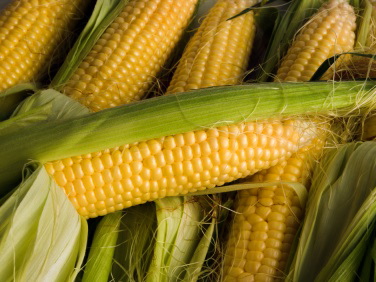
corncob, l
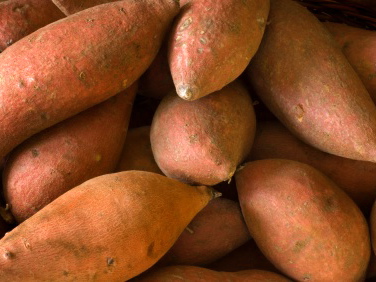
sweetpotatoes, l
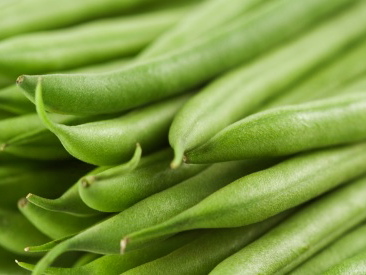
greenbeans, l
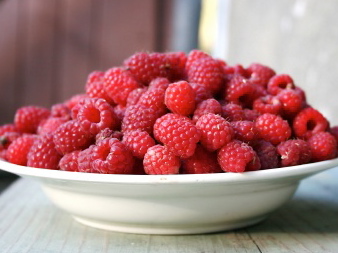
raspberries, l
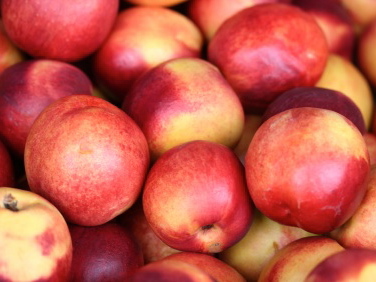
nectarines, l
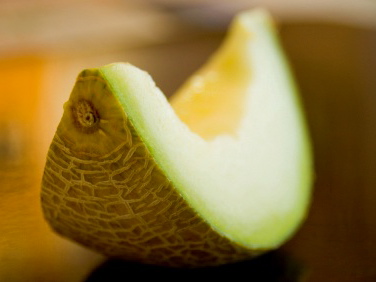
honeydew, l

carrots, l